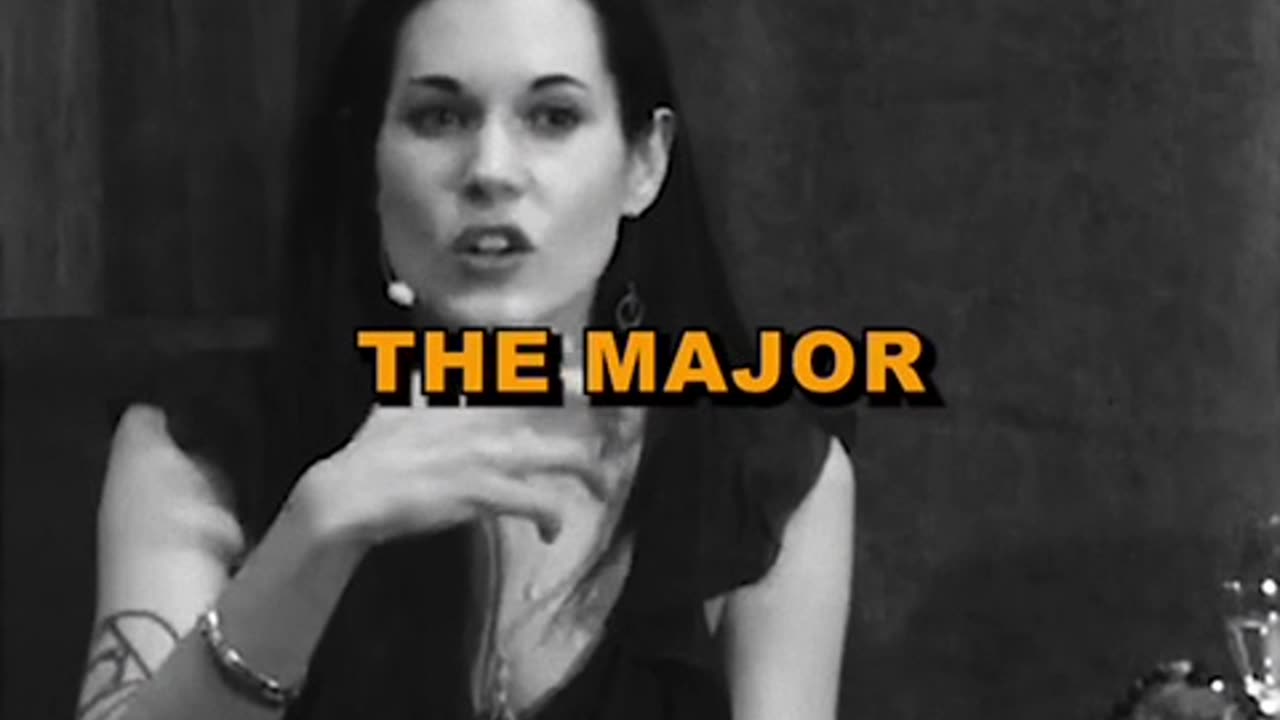Premium Only Content

The Critical Role of Support Systems in Parenting: Insights, Challenges, and Solutions
Parenting is a journey filled with profound rewards, but also significant challenges, especially for single parents. Despite societal narratives glorifying independence, the evidence overwhelmingly demonstrates that the presence of a supportive partnership or community profoundly impacts both parental well-being and child development.
This article integrates cutting-edge research, historical context, and actionable solutions to explore the necessity of support systems in parenting, the consequences of their absence, and the structural changes required to better support families in the modern age.
I. A Historical Perspective: Parenting Was Never Meant to Be Solitary
Throughout human history, parenting was not an individual endeavor. Early societies operated within communal frameworks, where the burdens of raising children were distributed among extended family and community members.
1. The Tribal Model
• In tribal societies, child-rearing was shared across the group, ensuring that no single individual bore the full weight of caregiving.
• Emotional, physical, and financial responsibilities were communal, fostering resilience and mutual support.
2. The Isolation of the Nuclear Family
The nuclear family, which isolates parents from broader support networks, emerged relatively recently in human history. This model places immense pressure on one or two individuals to fulfill roles traditionally shared by many.
Key Insight:
Parenting was never designed to be undertaken alone, yet modern family structures often force individuals into solitary caregiving roles, creating significant stress and emotional strain.
II. The Rising Prevalence of Single-Parent Households
1. Global Trends
Single-parent households are becoming increasingly common:
• In the United States, 23% of children live in single-parent homes, the highest rate globally.
• In Canada, nearly one in five children resides in a single-parent family, with 83% of these households led by single mothers.
2. The Challenges Faced by Single Parents
• Economic Strain: Single parents are more likely to face financial instability due to the absence of a second income.
• Time Poverty: Balancing work, childcare, and household responsibilities often leaves little time for self-care or meaningful engagement with children.
• Emotional Toll: The absence of a supportive partner can lead to increased stress, anxiety, and depression.
Key Insight:
The rise of single-parent households underscores the importance of rethinking societal structures to provide the support these families need.
III. The Role of Supportive Partnerships in Parenting Success
1. What Makes a Parent Effective?
One groundbreaking study revealed the single greatest determinant of a mother’s effectiveness: the presence of a supportive partner.
• Emotional Stability: A supportive partner helps buffer the stress of parenting, enabling mothers to focus more energy on their children.
• Energy Allocation: When a partner provides emotional and logistical support, mothers can direct their energy toward nurturing their children rather than managing overwhelming responsibilities.
2. The Ripple Effect on Children
Children benefit immensely when their parents have strong support systems:
• Improved Development: Supportive partnerships reduce parental stress, which correlates with better cognitive, emotional, and social outcomes for children.
• Secure Attachment: Parents who feel supported are more likely to provide consistent care, fostering secure attachment in their children.
Key Insight:
The presence of a supportive partner or network isn’t just a convenience—it’s a critical factor in ensuring both parental well-being and optimal child development.
IV. The Science of Emotional and Structural Support
1. Emotional Energy Flow
Research shows that the emotional energy of a parent directly impacts their ability to provide effective caregiving. A supportive partner or network acts as a stabilizing force, allowing parents to maintain emotional resilience.
2. Social and Neurobiological Mechanisms
• Oxytocin Release: Positive social interactions, such as support from a partner, stimulate oxytocin production, which enhances bonding and reduces stress.
• Mirror Neurons: A supported parent’s emotional stability is mirrored by their children, promoting emotional regulation and well-being.
3. The Role of Blame and Responsibility
In single-parent households, the absence of a partner often leads to self-blame or frustration. Recognizing societal failures rather than personal inadequacies can help parents focus on constructive solutions.
Key Insight:
Support systems influence not only the emotional health of parents but also the neurological and behavioral development of their children.
V. Why the Myth of “Doing It All” Is Harmful
1. Unrealistic Expectations
The narrative that single parents can “do it all” perpetuates unattainable standards:
• Economic Barriers: Without systemic support, single parents often face insurmountable financial hurdles.
• Mental Health Risks: The constant pressure to manage everything alone leads to higher rates of anxiety, depression, and burnout.
2. The Costs to Children
When parents are overwhelmed, children bear the consequences:
• Emotional Neglect: Overburdened parents may struggle to provide the consistent attention children need for healthy development.
• Behavioral Challenges: Children in unsupported households are more likely to exhibit behavioral and academic difficulties.
Key Insight:
Rejecting the myth of “doing it all” opens the door to systemic solutions that benefit both parents and children.
VI. Building Stronger Support Systems
1. Community Support
• Childcare Networks: Affordable, high-quality childcare can alleviate the burden on single parents.
• Co-Parenting Arrangements: Sharing responsibilities with extended family or friends can provide much-needed relief.
2. Policy Interventions
Governments play a critical role in supporting single-parent families:
• Paid Parental Leave: Ensures parents can spend critical time with their children without financial stress.
• Subsidized Childcare: Reduces the economic strain on single parents and promotes child development.
• Flexible Work Arrangements: Enables parents to balance professional and personal responsibilities more effectively.
3. Cultural Shifts
Society must move away from individualistic ideals and embrace a collective approach to parenting:
• Normalizing Asking for Help: Destigmatizing the need for support encourages parents to seek assistance without shame.
• Revaluing Fatherhood: Encouraging fathers to take active, nurturing roles benefits both children and mothers.
Key Insight:
By strengthening community networks, implementing supportive policies, and challenging cultural norms, we can create a society where all families thrive.
VII. The Path Forward: A Vision for Thriving Families
Parenting, whether in single or partnered households, is one of the most demanding roles in life. The challenges faced by single parents highlight systemic failures that require urgent attention. However, the solutions are within reach:
• Empower Parents: Provide resources and support to alleviate the burdens of single parenthood.
• Rebuild Communities: Foster networks of care that replicate the communal structures humanity relied on for millennia.
• Transform Policy: Advocate for systemic changes that prioritize family well-being over individualism.
By addressing these challenges, we can move toward a society that values and supports parents, ensuring that every child has the opportunity to grow in a nurturing environment.
Conclusion: Redefining Success in Parenting
Parenting was never meant to be a solitary journey. Whether through supportive partnerships, robust social networks, or systemic reforms, we must acknowledge the importance of collective responsibility in raising the next generation.
When we shift the narrative from individual struggle to shared resilience, we empower families to thrive—proving that no parent, and no child, should have to navigate this journey alone.
-
 1:34
1:34
FragmentsOfTruth
8 days agoTHE HIDDEN COST OF BIRTH CONTROL — What They Never Told You About the Pill
376 -
 10:46
10:46
China Uncensored
16 hours agoHasan Piker Finds Out the Hard Way...
1.78K14 -
 59:40
59:40
American Thought Leaders
13 hours agoHe Said No to Billions from China. Now They’re After Him | Declan Ganley
1.82K1 -
 4:58
4:58
GreenMan Studio
12 hours agoTHE RUMBLE COLLAB SHOW EP.4 W/Greenman Reports
752 -
 8:05
8:05
Freedom Frontline
15 hours agoAOC DISRESPECTS Byron Donalds And Gets DESTROYED Immediately
2121 -
 11:53
11:53
GBGunsRumble
12 hours agoGBGuns Range Report 15NOV25
582 -
 21:37
21:37
Forrest Galante
7 hours ago6 Deadly Sea Monsters That Actually Exist
61.3K2 -
 8:10
8:10
MattMorseTV
15 hours ago $10.65 earnedDemocrats caught COLLUDING with Epstein.
12K38 -
 LIVE
LIVE
Lofi Girl
3 years agolofi hip hop radio 📚 - beats to relax/study to
784 watching -
 43:24
43:24
ThisIsDeLaCruz
1 day ago $7.62 earnedWhat Fans Never Knew About Falling In Reverse’s Guitarist
21.7K